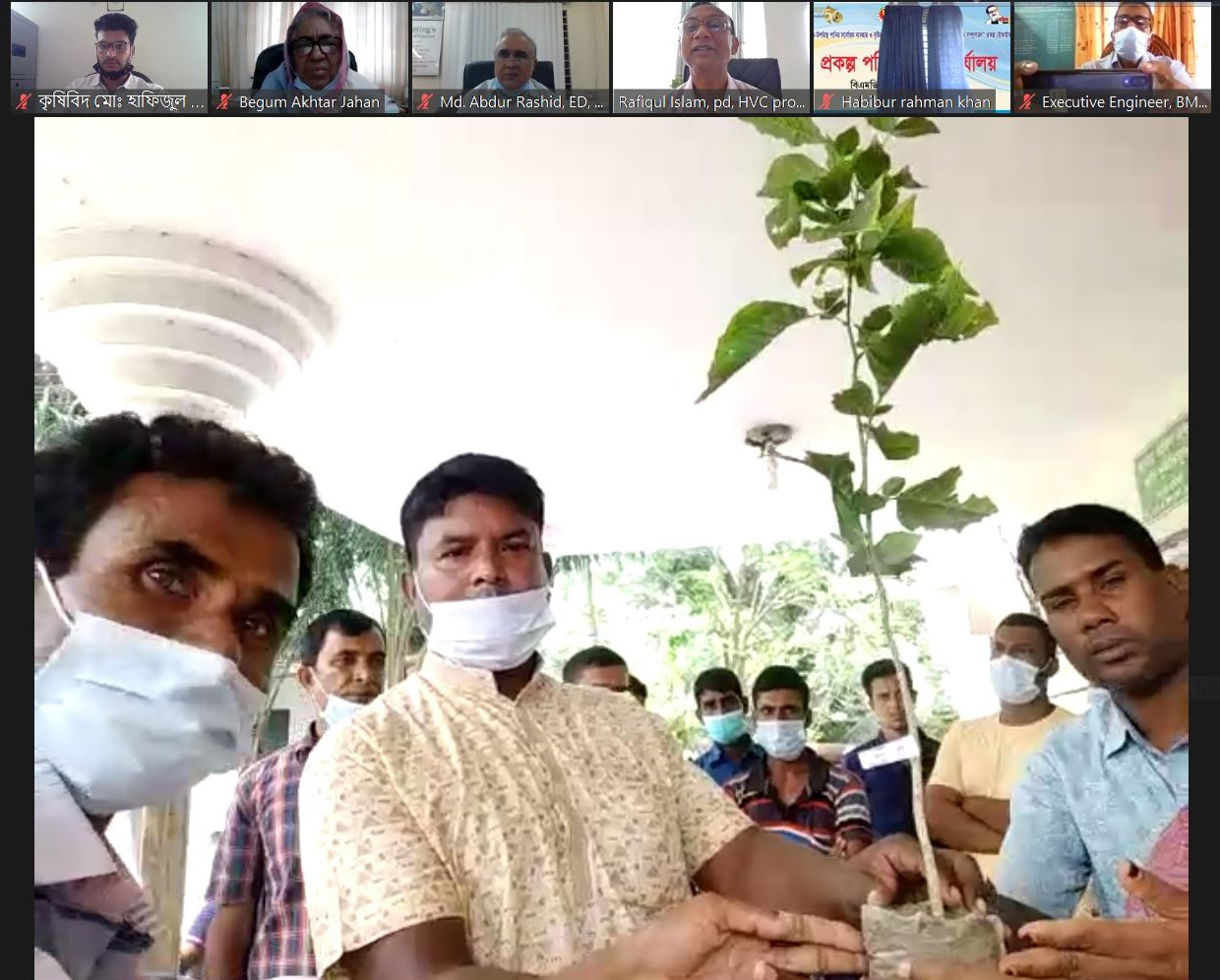
RAJSHAHI, Aug 19, 2021 (BSS) - Some 77 grassroots farmers were given
5,577 tree-saplings of high-valued nonconventional fruit free of cost aimed
at boosting yield of those in the region.
On behalf of its project titled "Popularizing of High Valued
Unconventional Fruit and Medicinal Crop in the Barind Area", Barind
Multipurpose Development Authority (BMDA) distributed the saplings among the
farmers of Paba and Tanore Upazilas on Wednesday.
BMDA Chairman Begum Akter Jahan opened the distribution programme as
chief guest with its Executive Director Engineer Abdur Rashid in the chair
virtually to mark the Mujib Barsha.
Director of the project ATM Rafiqul Islam told BSS that 4.15 lakh
saplings and 2,000 kilograms of seeds of the nonconventional fruits and crops
will be distributed among the farmers free of cost on behalf of the project.
The five-year project is being implemented in 13 upazilas of Rajshahi,
Chapainawabganj and Naogaon districts at a cost of around Taka 17.34 crore.
Some 1,500 farmers and 310 officers and employees concerned will be
imparted training on production, transplantation, nurturing and other
techniques of the seedlings.
Besides, a total of 52 demonstration orchards will be generated aimed at
boosting production of high-valued non-conventional fruits and medicinal
crops through popularizing farming of those in the Barind area.
Besides, initiative has been taken to generate more orchards of the
highly valued fruits and field crops in personal lands and homesteads of the
farmers in the dried area.
Rafiqul Islam said the project will be implemented with the main focus
of boosting commercial farming of the high-valued fruits in the project-
covering areas.
As a whole, the project is intended to inspire the farmers to high
valued fruits farming commercially.
"We have set the target of establishing 22 orchards for fruits, 20 for
field crops, eight for spices and two for beverages," he said, adding that
most of the highly valued nonconventional fruits, field crops, spices and
herbs will be brought under demonstration.
Upon successful implementation by June, 2025, the project is expected to
contribute a lot to enhance the number of orchards of nonconventional fruits
and medicinal crops.